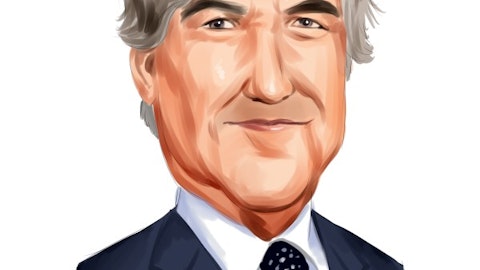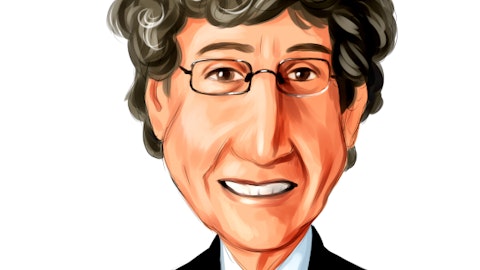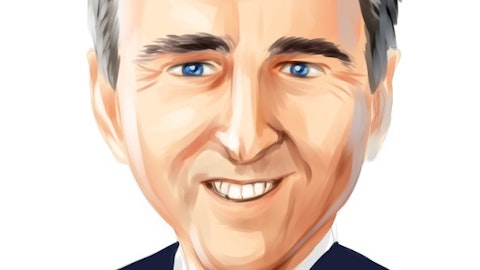Roberto Otero: Thanks, Javier. Yes, you’re right. I mean, when we model Isaac, we expect the company to be able to reach a breakeven by the end of next year. So that’s the expectation. So end of 2024, beginning of 2025, considering the scale that the company is supposed to reach that should be the inflection point in terms of profitability. There could be upside and downsides, okay, to this assumption. A potential upside, for example, is the speed at breach will evolve in terms of cross-sell. We are assuming a certain percentage of this incremental growth to come from cross-sell, but this could prove to be conservative, especially because Isaac is not a pedagogical product. And we are basing the cross-sell assumption on our experience with pedagogical products, right. So eventually, we could see upsides there, but we could also see downside. So I think it’s realistic to assume, and I think it’s reasonable to assume a breakeven as we cross 2024, okay.
Javier Martinez: Okay, that’s fair. So the idea is to make money eventually, okay. So Otero, another question is on Supplemental. The bookings obviously they’re growing, so you’re going to have a fantastic 2023. So don’t misunderstand my comment. But you’re growing only 26%. You’re growing quite similar to Core. And you’re growing more volumes and less on price than Core. So what is €“ shouldn’t we be expecting Supplemental to grow double than Core given the penetration, the cross selling? So are you having more complexity or difficulty to cross-sell? And that’s also part of the reason why prices are lower, what is happening there?
Roberto Otero: Sure. Thank you. Yes. I think I agree overall with your opinion Javier, if we look at the Supplemental performance excluding international school, we would have grown above 40% close to 45%. So I think once we are managing this company completely for sure this will impact performance €“ growth performance. We saw a stronger performance in other bilingual products that we own. So I think we can say that once we are fully managing international school, we’ll probably benefit more from cross-sell and also from, I mean, to go to market strategies and processes that we’ve been applying to other brands, okay? So again, I mean, when we exclude international school, the performance would be about 40% growth, which I think considering the scale of those products already, I think it’s a very solid performance, okay.
So it’s difficult to compare to the growth rates of three, four years ago of above 60%, 65%, because the scale of those products was also much smaller, right? So €“ but again, I think we can do better than what we did in 2023, and having international school in our portfolio will be one of the drivers, but not only, I think cross-sell is a learning curve, okay. I think we still see a room to improve cross-sell processes internally, okay. It’s a learning curve. It’s something new. I think we’re doing step by step there, but this should also be a source of improvement in growth rates for Supplemental.
Javier Martinez: Okay. Thank you, Otero. And my final question for Ari, on the offer, the offer was on December 1, four months ago. Can you update us a little bit? So why is taking so long for the board to have a view? What is happening there?
Ari de Sa Cavalcante Neto: Hi, Javier. Thank you for your question. Just on the last question regarding the Supplemental, I just want to clarify that in this year, we had 71% of the new intakes for Supplemental coming from cross-sell. So as Otero said, we have been improving the cross-sell process, and as you exclude International School from the Supplemental solutions, we posted a growth of more than 40%. We still have a very low penetration, but we went from 15% to 18% of at least one solution of Supplemental in our Core brands. And we also have the growth that are coming from new schools that do not use products from Arco. So we expect to have a solid growth of Supplemental solutions throughout the years in a higher level than we have on Core, of course, which is a larger business.





